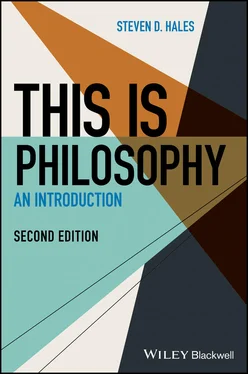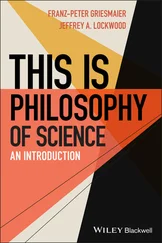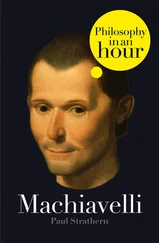The scholars and people of the knowledge, amongst them Sahib al-Ikhtiyarat [ibn Taymiyya] and ibn al-Qayyim, and Shawanni, and many others, and Qutubi–may God bless him–in his Qur’an commentary, say that if the disbelievers were to kill our children and women, then we should not feel ashamed to do the same to them, mainly to deter them from trying to kill our women and children again. And that is from a religious perspective…
As for the World Trade Center, the ones who were attacked and who died in it were part of a financial power. It wasn’t a children’s school! Neither was it a residence. And the general consensus is that most of the people who were in the towers were men that backed the biggest financial force in the world, which spreads mischief throughout the world. And those individuals should stand before God, and rethink and redo their calculations. We treat others like they treat us. Those who kill our women and our innocent, we kill their women and innocent, until they stop doing so.
(Lawrence, 2005, pp. 118–119)
Bin Laden was clearly concerned with the morality of killing “women and innocents;” he took pains to note that al-Qaeda attacked the World Trade Center, a financial building that–in his view–contained supporters of an materialist, imperialist nation of unbelievers. WTC was not a school or a home. Moreover, Bin Laden cited religious scholars and interpreters of the Qur’an to support his belief that killing noncombatants as a form of deterrence is a morally permissible act, sanctioned by his religion. Bin Laden was a devout and pious man who scrupulously adhered to his moral principles. If you think that he was a wicked, mass-murdering evildoer, it is not because he failed to be principled. It is because you find his principles to be bad ones.
What proof is there that Bin Laden’s moral principles are the wrong ones? None, really, other than an appeal to our common ethical intuitions that the intentional murder of innocents to further some idiosyncratic political or religious goal is morally heinous. If you disagree, it may be that your moral compass points in such an opposite direction that you don’t have enough in common with ordinary folks to engage in meaningful moral discussion. Even Bin Laden worried that it is wrong to kill children and women, which is why he was careful to justify his actions.
Just because you base your actions on some rule, principle, or moral code that you’ve adopted or created is no guarantee that you’ll do the right thing. You could have a bad moral code. Of course, everyone thinks their own moral code is correct, but that’s no guarantee that it is–just look at Bin Laden. Well, is it better to base your actions on your intuitions, on the feelings you have about whatever situation is at hand? Not necessarily. Feelings are immediate and case-specific, and the situation right in front of us is always the most vivid and pressing. Your gut instincts may lead you to choose short-term benefits over what’s best in the long term. For example, imagine a mother who has taken a toddler in for a vaccination. The child is crying, not wanting to feel the pain of the needle. Surely the mother’s instincts are to whisk the child away from the doctor advancing with his sharp pointy stick. Yet sometimes the right action is to set our feelings aside to see the larger picture. The mother has a moral obligation to care for her child, and so must hold back her protective sympathies and force the child to get the shot.
If we can’t trust our moral principles and rules (because we might have bad principles and rules), and we can’t trust our moral intuitions (because our sympathies might be short-sighted and narrow), then what should we do? The most prominent approach is to use the best of both worlds. We should use our most fundamental moral intuitions to constrain and craft moral theories and principles. This approach does not mean that we just capitulate to our gut instincts. Sometimes our principles should override those instincts. At the same time, when our principles or theories tell us to perform actions that are in conflict with our deepest feelings and intuitions, that is a reason to re-examine those principles and perhaps revise them or even reject them outright. Such a procedure apparently never occurred to Bin Laden, who either felt no sympathy for his victims, or was unflinchingly convinced of the righteousness of his cause.
The idea that moral rules be tested against our intuitions is analogous to the scientific method by which scientific theories are tested against experiments and direct observations. Sometimes a really fine and widely repeated experiment convinces everyone that a scientific theory cannot be right, and sometimes experimental results or observations are dismissed as faulty because they come into conflict with an otherwise well confirmed and excellent theory. There is no hard-and-fast way to decide how to go. How would all this play out in the case of ethics?
Here is a simple example to illustrate the procedure, before we move on to taking a look at the more prominent moral theories. Consider the so-called Golden Rule 1, a moral rule dating from antiquity that appears in various forms in a variety of different ancient authors and traditions. It states: Do unto others as you would have them do unto you . What intuitions could be used as evidence against this rule? Put another way, what’s counterintuitive about it, if anything? Well, the Golden Rule implicitly assumes that everyone has the same preferences. That assumption seems a bit questionable. Suppose that you like backrubs. In fact, you’d like a backrub from pretty much anyone. The Golden Rule advises you to treat other people the way you would like to be treated. Since you’d like other people to give you unsolicited backrubs, you should, according to the Golden Rule, give everyone else a backrub, even if they didn’t ask for one. But some people don’t like backrubs, or don’t care for strangers touching them. Intuitively, it would be wrong to give backrubs to those people without their consent, or against their will. Since this intuition conflicts with the Golden Rule’s implication to administer unsolicited backrubs, we should conclude that maybe the Golden Rule is really iron pyrite after all.
You might respond that we should revise the Golden Rule to avoid the unwanted implication, or we should replace it with a more precise moral rule. Perhaps, Do unto others as they would have be done unto them , or some such. Of course, that formulation means we would have to give others whatever they ask of us, which is surely more than we should have to provide. That’s just how moral philosophy proceeds– we modify our moral views in light of compelling arguments and counterexamples, or sometimes go back to the drawing board altogether to come up with better theories.
1.2 Divine Command Theory (Is Morality Just What God Tells Me to Do?)
Morality could be like the law in this sense: an authority is needed to tell us what our moral duties are, and to enforce the rules. Without a lawgiver, a ruler to lay down the moral law, we are adrift with no deeper connection to right and wrong than our own transient preferences. Traditionally, God has been considered to be this moral authority. You might think that if God does not exist, then everything is permitted. The need for God as a source of morality is often cited as a motivation–maybe the motivation–to be religious; that the ethical life is possible only within a religious context. It is endorsed, as we saw above, by Osama bin Laden, and promoted by no end of Christian ministers, pundits and politicians. It is well worth thinking through.
Divine command theory is not new, nor is it connected with any particular religion. Orthodox Jews subscribe to the 613 mitzvot 2, the complete list of Yahweh’s commandments in the Torah, including not to gather grapes that have fallen to the ground, not to eat meat with milk, and not to wear garments of wool and linen mixed together. Christians recall the Ten Commandments 3that Yahweh gave to Moses or the instructions of Jesus to love God and also to love one’s neighbor as oneself. Muslims emphasize the value of having a good character, which is built by following the five pillars of Islam 4: believing that there is no God but Allah, offering daily prayers, performing charity, engaging in fasting, and going on a pilgrimage to Mecca. Such actions and beliefs are all moral obligations as laid down by the deities of those respective religions.
Читать дальше












